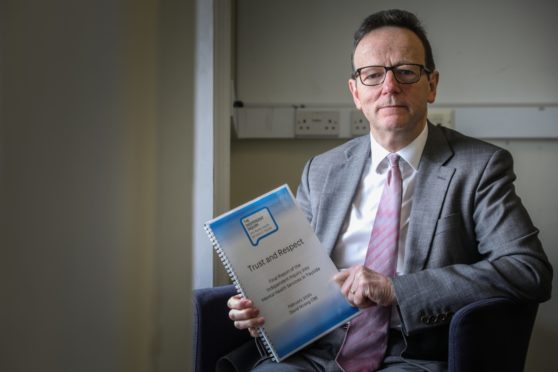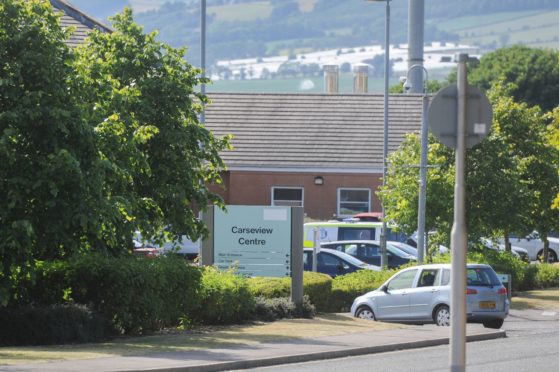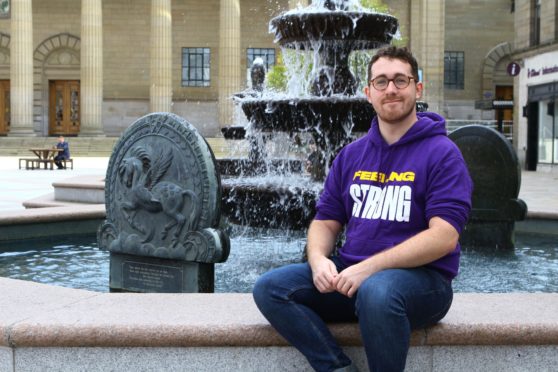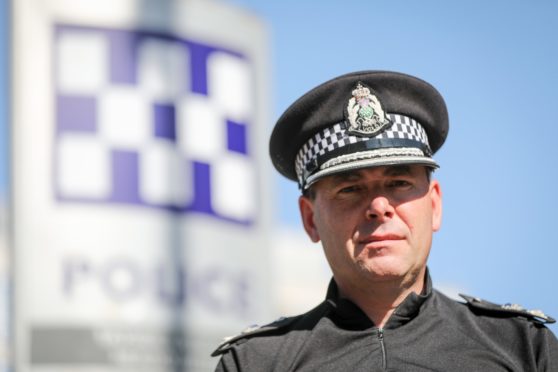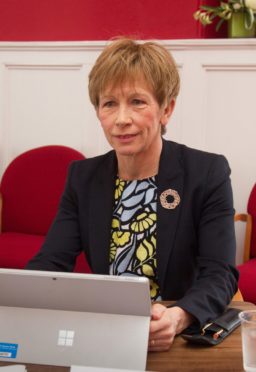Health bosses have vowed to provide mental health support from birth to old age to everyone living in Tayside.
On Thursday 24 February NHS Tayside officially launched its ‘Living Life Well’ strategy, which details how the health board will put patients at the heart of transforming mental health services over the coming years.
Back in 2018 an independent inquiry was held after concerns were raised about the state of mental health services in Tayside at the Scottish Parliament.
On the back of this inquiry, a report by Dr David Strang was published in February 2020 which made 51 different recommendations on “significant” changes that needed to be made to mental health services in Tayside.
The new ‘Living Life Well’ strategy sets out exactly how NHS Tayside plans to make these changes, and vows to offer lifelong mental health care and says it will put patients at the centre of their own treatment.
What is going to change?
Currently around one in four adults will experience a mental health problem during their life, which equates to 87,465 people in Tayside alone.
However, it is hoped the changes in the ‘Living Life Well’ strategy will make patients an equal partner in making decisions about their care, and will also be encouraged to speak about their care to make sure their needs, personal circumstances, values and expectations are reflected in their care.
Patients will also be supported to lead active lives and have greater access to support beyond mental health support and there will be a much greater focus on care in the community, so hospital-based treatment is only given where it is necessary.
Urgent care will also be extended with round-the-clock access to in person and online support services.
Some of the key changes highlighted in the ‘Living Life Well’ strategy include:
- The advice given to GPs and patients about what conditions can be managed in primary care and what needs to be referred to secondary care will be improved
- Treatment for crisis and urgent care will be reviewed and improved
- Wards will be improved to make sure they are safe and therapeutic
- New treatment paths will be developed for those with emotionally unstable personality disorders
- A new perinatal mental health team, infant mental health team, and early intervention in psychosis team will be introduced
- There will be a better continuity of care
- The link between physical health and mental health will be emphasised
- The wellbeing of staff will be considered as well
Staff working in NHS Tayside’s mental health team will also be supported to develop their work and be asked to give their views while being treated with dignity and respect.
They will also play a central role in making changes to mental health services and in developing “efficient and effective” services.
NHS Tayside has also vowed to make sure staff have the resources they need to do their job properly.
Move to focus on preventing mental health crises, says NHS chief executive
At the board meeting where the strategy was launched Grant Archibald, chief executive of NHS Tayside, said there would be more of an emphasis on preventing mental health crises from happening.
He said: “I am delighted we are launching our new strategy ‘Living Life Well’.
“It has been endorsed by those with lived experience and those in the community and it is for everyone, not just those who present at hospital.
“Our commitment is to lift the health of the entire population rather than being better at dealing with it when it is in crisis.
“It is not just for when you are ill, it is to try and help you not become ill, that is what ‘Living Life Well’ is all about and that involves a whole series of things such as employment, education and routes out of poverty.
“This is a very exciting time for Tayside.”
Kate Bell, interim director of mental health and learning disabilities and NHS Tayside, added: “This is a lifespan approach from birth to old age.
“It was set up as a public health priority and it is a plan, it is not aspirational.
“We want large-scale changes to improve mental health services over the coming years.”
“This is the start of an exciting journey”, says Dundee youth mental health campaigner
Brook Marshall from the Dundee youth mental health charity Feeling Strong was one of those who helped create the ‘Living Life Well’ strategy.
He spoke at Thursday’s NHS Board meeting and said: “I was very clear this had to be more than just a document, it had to be a commitment.
“A very important part of that was gaining people’s trust and respect – that was a key thing to come out of the independent inquiry.
“It had to be a human document that people could connect with on an emotional level and it feels fresh and represents a new direction of travel.
“It represents meaningful change in the long-term with a genuine appreciation amongst the community.
“This is not the end, this is the start of an exciting journey.”
How will NHS Tayside measure the success of this new strategy?
As part of the ‘Living Life Well’ strategy, NHS Tayside has also set out its ’10 measures of success’ to demonstrate exactly what it is setting out to achieve.
These 10 steps include:
- Tayside will have mental health services that make safety and quality central to delivering care
- There will be evidence of ongoing investment in preventing mental health conditions and early intervention for those who ask for help
- People can successfully access the right care at the right time and as close to home as possible
- High-quality, person-centred care and treatment will be experienced in all settings
- Coordinated treatment and support for those with severe and complex mental illness will be the norm
- Evidence to demonstrate effective performance and improvement in place to ensure the pursuit of world class mental health services
- There will be excellent patient experiences by ensuring people get the support they need when and where they need it, and making sure they are not passed around from service to service and asked to repeat their story over and over again
- Transitions within and between mental health services will be well managed to make sure people are supported and protected from harm
- An improvement in the physical health of those living with mental illness will reduce mortality rates
- Public and cultural perspectives on mental illness and attitudes towards mental illness will influence and shape attitudes to eradicate stigma and discrimination.
Mental health plan welcomed by top cop and local council leaders
Amongst those who helped to create the plan for transforming mental health services were Police Scotland and Tayside’s three local authorities.
Chief Superintendent Andrew Todd, Tayside divisional commander at Police Scotland, said: “On behalf of Tayside division, I welcome the progress that has been made to strengthen mental health and learning disability services in the region, and am pleased to support the launch of this important strategy.
“Police Scotland will continue to work alongside other key partners to support the delivery, and we remain committed to playing our part in supporting the needs of the people we serve in our communities.”
Meanwhile Margo Williamson, chief executive of Angus Council, said: “The Covid-19 pandemic has highlighted the awareness and importance of supporting our mental health and wellbeing as much as our physical health.
“We are committed to this strategy across Angus and it will form an important part of our recovery plans.”
Greg Colgan, chief executive of Dundee City Council, added: “It is vital for people in Dundee and the wider Tayside area that partners continue to work together to improve mental health and wellbeing services.
“This approach will help us to meet the significant additional challenges that have been caused by the coronavirus pandemic.”
And Barbara Renton, interim chief executive of Perth and Kinross Council, said: “Approximately one in four people will suffer from a mental health problem at some point in their lives and we are committed to supporting the ‘Living Life Well’ strategy in Perth and Kinross.
“Mental health and wellbeing services are a critical part of healthcare and will be more important than ever as a result of the coronavirus pandemic.”

